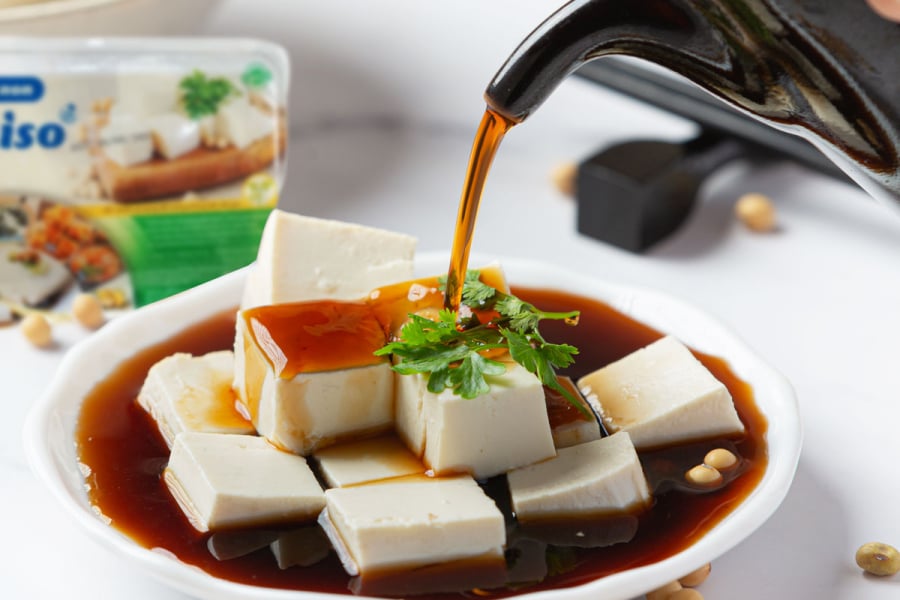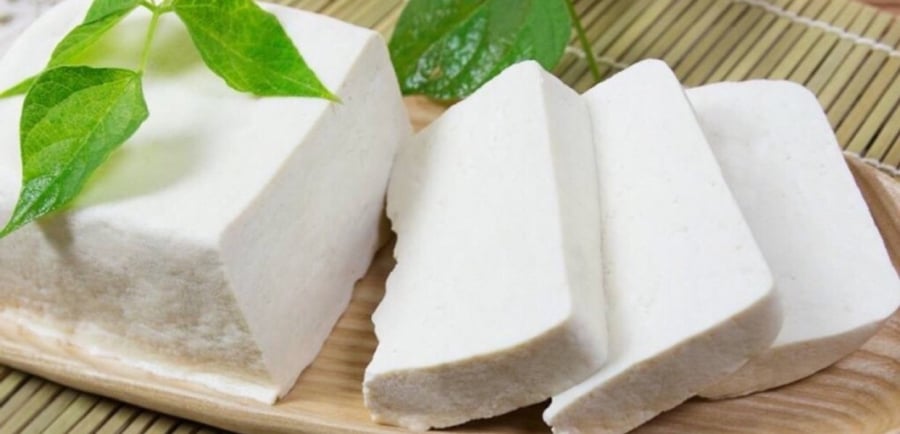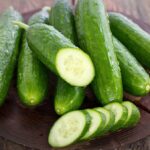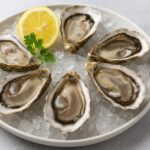Tofu is a popular food in many Asian countries, including Vietnam, Korea, Japan, and China. It is a good source of protein, low in calories, and loved for its versatility in cooking. However, not everyone should consume tofu, and some wrong habits when eating tofu can be harmful to one’s health.
Who Should Avoid Eating Tofu?
People with Thyroid Issues
Tofu contains isoflavones, compounds that can interfere with thyroid function, especially in those with hypothyroidism or iodine deficiency. If you are taking medication for your thyroid, consult your doctor before regularly consuming tofu.
People with Oxalate Kidney Stones
Tofu’s nutritional content includes oxalates, which may increase the risk of kidney stone formation in those with a history of the condition. Therefore, if you fall into this group, it is advisable to limit or avoid tofu consumption.

People Allergic to Soy
As tofu is made from soybeans, individuals allergic to soy or soy products should refrain from consuming it to avoid reactions such as itching, rashes, or difficulty breathing. If you experience any unusual symptoms after eating tofu, stop consumption immediately and seek medical advice.
People with Digestive Issues
Tofu contains oligosaccharides like raffinose and stachyose, which can cause bloating and digestion issues in people with sensitive digestion or irritable bowel syndrome (IBS).
Pregnant and Lactating Women
While tofu is a good source of protein, excessive consumption may affect hormonal balance due to isoflavones. Pregnant and lactating women should consume tofu in moderation and consult their doctors for personalized advice.
Wrong Habits When Eating Tofu That Harm Your Health
Consuming Raw or Undercooked Tofu
Raw or undercooked tofu may harbor bacteria and anti-nutrients like trypsin inhibitor, which interferes with protein digestion. Always cook tofu thoroughly before consumption to ensure safety.

Eating Too Much Tofu in One Meal
While tofu is generally considered healthy, overconsumption may lead to isoflavone excess, causing hormonal imbalances or bloating. A reasonable portion is about 100-150g of tofu per day.
Combining Tofu with Incompatible Foods
Certain food combinations can reduce tofu’s nutritional value or cause digestion issues. For example, eating tofu with spinach or Swiss chard (high in oxalates) may increase the risk of kidney stones. Regularly consuming tofu with honey may also cause digestive issues in some individuals.
Relying on Tofu as the Sole Source of Protein
While tofu is a good plant-based protein source, a varied diet is essential. Relying solely on tofu without including other protein sources like meat, fish, eggs, or other types of beans may lead to a deficiency in certain essential amino acids.



































